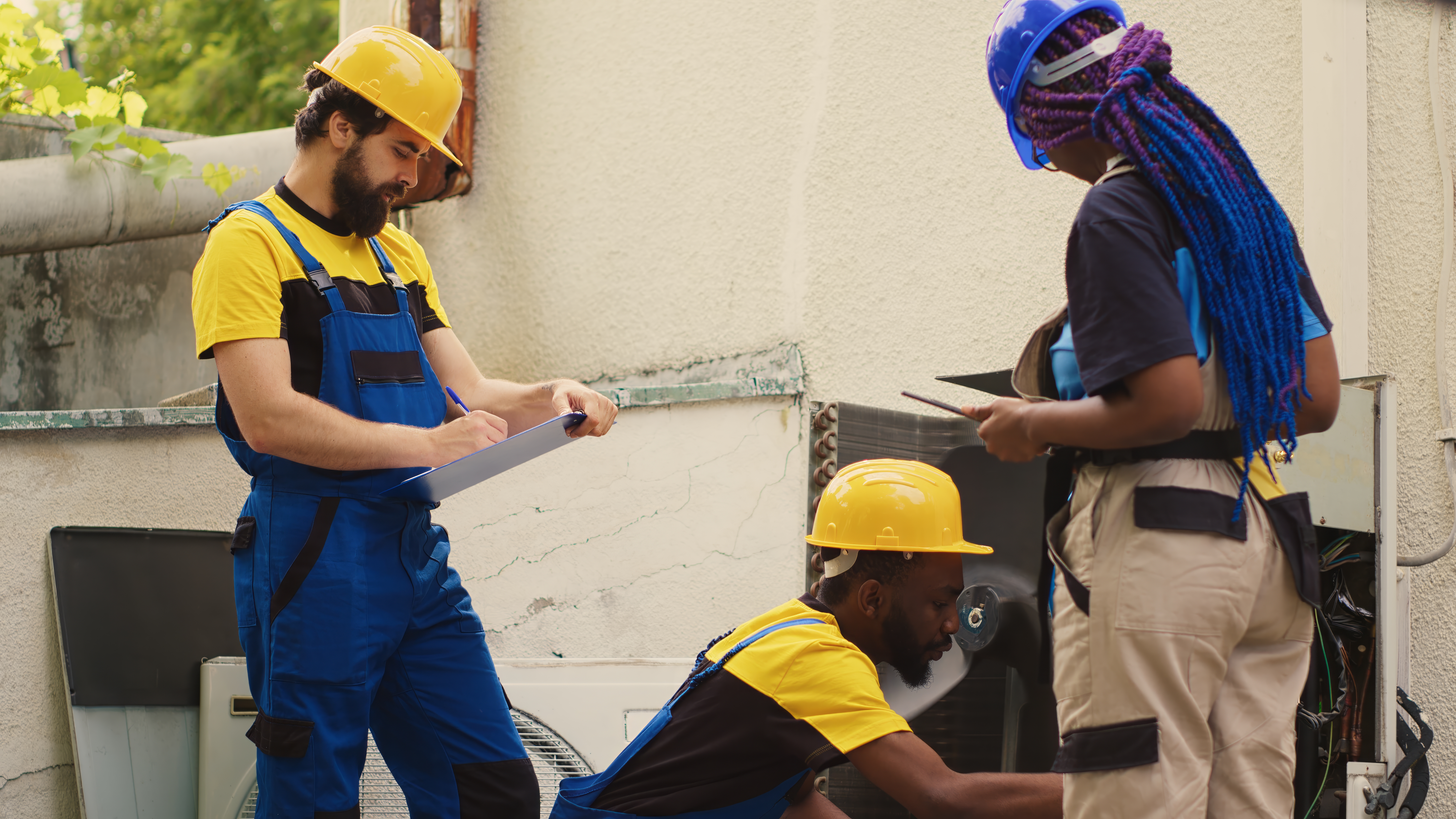
Maintaining Your Property in Ghana’s Tropical Climate: Essential Tips for Homeowners
Maintaining Your Property in Ghana presents unique challenges due to the country’s tropical climate. As a homeowner, you enjoy beautiful sunshine and warm temperatures year-round, but these conditions require special attention to property maintenance. Regular upkeep is essential to prevent costly repairs and maintain your property’s value in Ghana’s unique environment.
In this article, we’ll share expert tips to help you effectively maintain your home in Ghana’s tropical environment, preserving its beauty, functionality, and value for years to come. Whether you own a standalone house or a unit in a luxury development like Eden Heights in Accra, these maintenance guidelines will help you protect your valuable real estate investment.
Understanding Ghana’s Tropical Climate
Ghana experiences a tropical climate characterised by consistently high temperatures, heavy rainfall, and high humidity levels throughout the year. Average temperatures range from 21°C to 32°C (70°F to 90°F). There are two distinct seasons:
- The wet/rainy season (April to October): Frequent heavy rains, peak in June/July
- The dry/harmattan season (November to March): Hot days, cooler nights, dry dusty winds from the Sahara
This climate promotes rapid growth of vegetation and can accelerate wear and tear on buildings. Common issues include:
- Moisture damage and mould/mildew growth
- Rusting of metal components
- Weathering of exterior paint and finishes
- Deterioration of wood elements
- Damage from intense sunlight and UV rays
Proactive, regular maintenance is key to mitigating these issues and preserving your property’s condition.
Exterior Maintenance
-
Roof:
- Inspect your roof regularly, especially before and after the rainy season.Look for damaged, loose or missing tiles/shingles and repair or replace immediately to prevent leaks.
- Clean gutters and downspouts of leaves and debris to ensure proper drainage of rainwater away from your foundation.
- Trim overhanging tree branches that could fall and damage your roof during storms.
-
Walls and Exteriors:
- Repaint exterior walls every 3-5 years with good quality, weather-resistant paint to protect against moisture and sun damage. Repair any cracks or damage to exterior walls and finishes.
- Check for signs of mold, mildew, or water stains which could indicate leaks or rising damp. Address any moisture issues promptly.
- Clean exterior surfaces periodically to remove dirt, algae, and stains. Pressure washing can be effective.
-
Doors and Windows:
- Ensure proper sealing around doors and windows to keep out moisture, dust, and pests. Replace worn weatherstripping or cracked seals.
- Lubricate hinges, locks, and movable parts to maintain smooth operation and prevent rust.
- For wood doors/windows, apply fresh paint, stain or varnish periodically to protect the wood. Check for signs of rot, warping or termite damage and repair as needed.
-
Drainage and Landscaping:
- Ensure proper grading and drainage around your foundation to direct water away from the building. Add fill dirt if needed.
- Keep vegetation and gardens well-maintained. Regularly prune plants and remove weeds. Avoid planting trees or shrubs too close to the foundation as roots can cause damage.
- Check for any erosion and address it to prevent soil/foundation issues.
Interior Maintenance
-
Ventilation and Humidity Control:
- Ensure good ventilation throughout your home to allow air circulation and prevent moisture buildup. Use fans and open windows when weather permits.
- In bathrooms and kitchens, use exhaust fans during and after bathing/cooking to remove excess moisture.
- Consider installing dehumidifiers in particularly humid areas to maintain ideal relative humidity around 30-50% and prevent mould growth.
- Allow proper spacing between furniture and walls to promote airflow.
-
Flooring:
- For hardwood, tile, or stone floors, clean regularly and watch for cracks or damage. Repair/replace damaged flooring promptly.
- With tile floors, check for any loose or missing grout or tiles and repair. Seal grout lines yearly to prevent moisture infiltration.
- For carpets, vacuum weekly and shampoo/deep clean every 6 months to a year to remove dust, dirt, and potential mold spores. Use fans to dry carpets thoroughly after cleaning.
-
Walls and Ceilings:
- Periodically inspect for any cracks, water stains, or signs of mold. Repair cracks and paint over any stains.
- Use mold-resistant paint in high-moisture areas like bathrooms and kitchens.
- Clean air vents and replace air filters regularly to maintain good air quality and reduce dust/mold circulation.
-
Plumbing:
- Check pipes, taps, and connections for any leaks or drips. Promptly repair any leaks, even minor ones, to avoid water damage and waste.
- Periodically clean faucet aerators and showerheads to remove mineral buildup common with hard water. -Inspect caulking and seals around tubs/sinks and re-caulk as needed to prevent moisture intrusion. -Monitor water pressure and consider installing a pressure regulator if needed to protect pipes.
Pest Control
Ghana’s tropical climate is conducive to various pests including mosquitoes, ants, cockroaches, termites and rodents. To keep pests at bay:
- Seal any cracks or openings around the exterior that could serve as entry points.
- Keep your property clean and free of standing water, which can attract pests.
- Store food in sealed containers and dispose of garbage regularly in sealed bins.
- Consider a professional pest control treatment annually or as needed, especially for termites which can cause extensive damage to wood elements if left unchecked.
Home Maintenance Checklist
To stay on top of maintenance tasks, create a checklist broken down by frequency. Key items:
Monthly:
- Clean gutters and downspouts
- Check for leaks and repair
- Vacuum/clean floors and surfaces
- Inspect and clean ventilation fans and filters
Quarterly:
- Service air conditioning units
- Clean and repair exterior finishes and landscaping as needed
- Lubricate doors, windows and locks
- Clean/replace shower curtains and liners
Annually:
- Service major appliances
- Repaint interiors and check for mold
- Inspect and repair exterior paint, roof, foundation
- Treat for pests as needed
- Reseal tiles and grout
Professional Services
While many maintenance tasks can be handled yourself, some require professional expertise. Don’t hesitate to call in specialists for:
- Major renovations or repairs
- Mold remediation
- Extensive pest issues like termite infestations
- Electrical or plumbing problems
- HVAC maintenance and repairs
- Structural issues like foundation cracks
Investing in professional services for complex issues can save you money and stress in the long run and ensure the work is done properly.
Conclusion
Maintaining your property in Ghana’s tropical climate requires diligence and proactive effort, but it is well worth it to preserve your home’s beauty, functionality, and value. By following these expert tips for exterior and interior maintenance, moisture and pest control, and involving professionals for complex issues, you can keep your property in excellent shape for years to come.
Remember, whether you’re caring for a standalone home or a unit in a luxury complex like the stunning Eden Heights development, regular maintenance is essential to protect your real estate investment and enjoy a comfortable, beautiful living space in the heart of Accra.
FAQs
-
How often should I repaint my home’s exterior in Ghana’s climate?
Exteriors should be repainted every 3-5 years to protect from moisture and sun damage. Quality, weather-resistant paint is key.
-
What’s the best way to prevent mold in high-humidity areas?
Ensure good ventilation, use dehumidifiers to maintain 30-50% humidity, fix any leaks promptly and clean regularly. Consider mold-resistant products.
-
How can I tell if I have a termite problem?
Signs include soft, hollow-sounding wood, mud tubes on foundations, discarded wings, and cracked or bubbling paint. Call a professional for an inspection if you suspect an infestation.
-
How do I maintain the tile flooring common in Ghana?
Sweep and mop regularly to remove dirt/debris. Inspect for cracks or damage and repair promptly. Annually, check for loose tiles or crumbling grout and reseal grout lines to prevent moisture issues.
-
Should I handle electrical or plumbing problems myself?
For any major electrical or plumbing issues, it’s best to call a licensed professional. Attempting repairs yourself can be dangerous and may void warranties or insurance coverage if done incorrectly.
For luxury living in the heart of Accra, look no further than Eden Heights. Our world-class accommodations and amenities offer unparalleled comfort and elegance in a prime location. Our professional facility management teams handle maintenance so you can relax and enjoy the lifestyle you deserve.
Contact us today to learn more about making Eden Heights your new home. Your premier real estate investment awaits!


